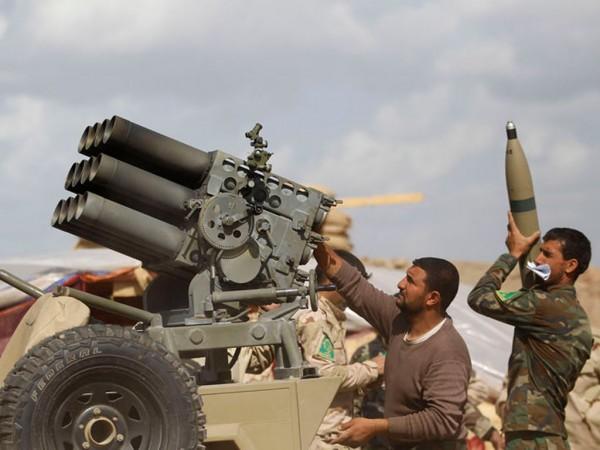
With the battle in Tikrit intensifying, reports have emerged that several key Islamic State (Isis) leaders have withdrawn to Mosul.
Iraqi army, which is now being backed by Iran, has retaken several parts of the strategic city from Isis. A Press TV report claimed that the Iraqi forces have taken control of parts of Qadisiyah neighbourhood located to the north of Tikrit.
The Iraqi Shiite and Sunni alliance have also taken control of north-eastern al-Teen and western al-Abeid districts, reported BBC.
Armed with rockets and expert snipers, the Isis on the other hand are proving to be a challenge for the Iraqi army. In the clashes till now, over 16 Iraqi soldiers have been killed.
Roughly 30,000 fighters are part of the offensive that began on Monday. It is estimated that about 2,000 Sunni tribal fighters and the around 13,000 Shiite militia forces are aiding the Iraqi army to fight Isis.
New photo-#Iran's elite Quds Force commander, Qassem Soleimani tea break on the ground near #Tikrit pic.twitter.com/UG46QzC0N7
— Terrormonitor.org (@Terror_Monitor) March 4, 2015
Despite the Iraqi forces approaching from several directions towards Tikrit, Salahuddin governor Raed al-Jabouri told Al-Arabiya Al-Hadath television that the army is yet to enter Tikrit.
Iranian General Qassem Soleimani, commander of the Quds Force reportedly was in Iraq on Tuesday to oversee the offensive in Tikrit.
Soleimani commands the Iranian Revolutionary Guard's Quds Force, one of the most powerful branches of the Iranian military.
It is claimed that there are roughly 7,000 Quds forces on the ground in Iraq both fighting and training new militia forces.
The Iraqi army, which until now has made six attempts to recapture the town from Isis, expects the large-scale military operation backed by the Shiite and Sunni fighters will help it recapture Saddam Hussein's hometown.
The Iranian involvement in the attacks against Isis has been welcomed by United States.
Top US General Martin Dempsey said on Tuesday that the development was a "a positive thing," provided it did not aggravate the sectarian tensions.
"This is the most overt conduct of Iranian support, in the form of artillery and other things," Dempsey told members of the Senate Armed Services Committee. "Frankly, it will only be a problem if it results in sectarianism."










